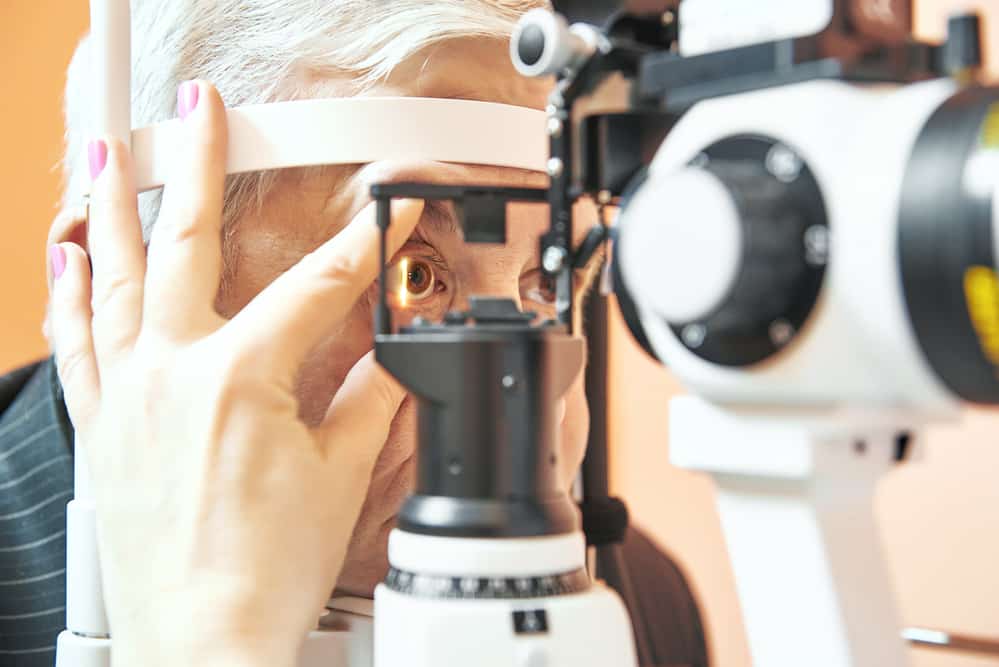Glaucoma is currently the leading cause of irreversible blindness, per the BrightFocus Foundation. Impacting around 80 million people worldwide – and three million in the U.S. alone – glaucoma is a serious issue that can have debilitating effects. Fortunately, preventative eye care can go a long way in minimizing glaucoma’s effects. But what causes glaucoma, exactly?
What Causes Glaucoma?
What Is Glaucoma?
Glaucoma is a collective term for a group of eye conditions, all of which damage the optic nerve and cause blindness over time. This kind of optic nerve damage is frequently caused by high ocular pressure, which often results from a buildup of liquid in the eye. Healthy eyes contain a clear liquid known as aqueous humor, which flows into the front part of the eye and drains out through an area called the drainage angle. When aqueous humor drains properly, it keeps the pressure in your eye stable. But if the fluid fails to drain properly, it can lead to high ocular pressure. That, in turn, can damage the optic nerve, creating blind spots in your vision. Those blind spots are a key marker of glaucoma.
What Causes Glaucoma?
As mentioned above, glaucoma is the result of high ocular pressure, which eventually damages the optic nerve. But while increased eye pressure is a major risk factor for glaucoma, it’s not entirely correct to say that increased pressure causes glaucoma. The truth is that scientists still aren’t sure what causes the most common forms of glaucoma. However, eye experts are aware of several risk factors for developing the condition. Anyone meeting the following criteria could be at risk for glaucoma:
- Age: Older adults are six times more likely to develop glaucoma after age 60, per the National Center for Equitable Care for Elders.
- Race: African Americans are at higher risk for glaucoma, with research pointing to earlier disease development and more severe blindness developed over time.
- Family history: A family history of glaucoma is a major risk factor, especially if patients have one or more siblings with the condition.
Treating Glaucoma
Understanding what causes glaucoma is only part of the puzzle. The truth is that many people with glaucoma don’t notice symptoms of the disease until they begin to lose sight. In fact, some researchers call glaucoma the “silent blinder” because patients often don’t exhibit noticeable symptoms during the early stages of the disease. Ultimately, early detection and treatment for glaucoma are the most important steps in reducing the disease’s overall impact on eye health.
Treatment for glaucoma varies from person to person. If you are diagnosed with glaucoma, a doctor may prescribe certain medications to reduce the fluid in your eye. Doctors may also recommend different types of surgery to treat glaucoma, including laser surgery and standard cataract surgery. Of course, early detection is only made possible through regular eye exams.
_____
So, what causes glaucoma? While researchers still aren’t sure of the exact cause of glaucoma, the condition does have several clear risk factors, including a buildup of pressure in the eye. Fortunately, early detection through regular eye exams can help slow the condition’s progression and keep you seeing as clearly as possible.
If you live in southwest Missouri, contact Heffington’s today. Since 1975, the Heffington family has been assisting the Springfield community with top-quality eye care and affordable eyeglasses and contacts. One of the unique features of our family-owned business is that we manufacture lenses at our own laboratory, giving us total control over the service and pricing, and we’re happy to pass our savings on to you. To learn more about our products and services, please get in touch with us online, send an email to asktheexperts@heffingtons.com, or give us a call at 417-869-3937 (Optiland location) or 417-882-3937 (House of Vision location). We look forward to hearing from you and helping you prioritize your eye health in the years to come.

